
Laura Sanders reports on neuroscience for Science News. She wrote Growth Curve, a blog about the science of raising kids, from 2013 to 2019 and continues to write about child development and parenting from time to time. She earned her Ph.D. in molecular biology from the University of Southern California in Los Angeles, where she studied the nerve cells that compel a fruit fly to perform a dazzling mating dance. Convinced that she was missing some exciting science somewhere, Laura turned her eye toward writing about brains in all shapes and forms. She holds undergraduate degrees in creative writing and biology from Vanderbilt University in Nashville, where she was a National Merit Scholar. Growth Curve, her 2012 series on consciousness and her 2013 article on the dearth of psychiatric drugs have received awards recognizing editorial excellence.

Trustworthy journalism comes at a price.
Scientists and journalists share a core belief in questioning, observing and verifying to reach the truth. Science News reports on crucial research and discovery across science disciplines. We need your financial support to make it happen – every contribution makes a difference.
All Stories by Laura Sanders
-
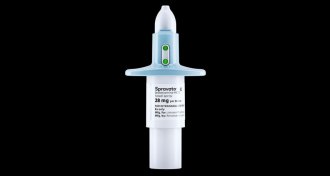 Health & Medicine
Health & MedicineA new ketamine-based antidepressant raises hope — and questions
Little is known about the long-term effects on people of a newly approved antidepressant based on the anesthetic ketamine.
-
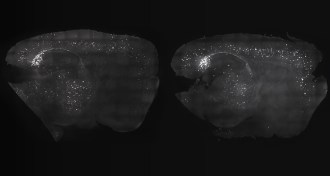 Health & Medicine
Health & MedicineFlickers and buzzes sweep mouse brains of Alzheimer’s plaques
Precisely timed clicking noises can counter signs of Alzheimer’s in the brains of mice and improve memory.
-
 Health & Medicine
Health & MedicineFDA has approved the first ketamine-based antidepressant
A nasal spray with a ketamine-based drug promises faster relief from depression for some people.
-
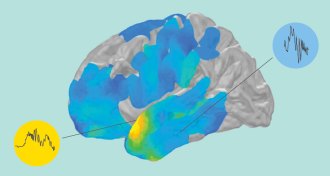 Health & Medicine
Health & MedicineRipples race in the brain as memories are recalled
A fast brain wave called a ripple often came before a person’s correct answer on a memory test.
-
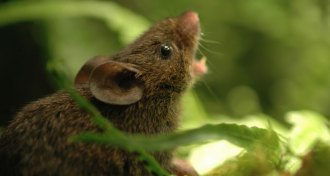 Neuroscience
NeuroscienceHow singing mice belt out duets
A precise timing system in the brain helps musical rodents from the cloud forests of Costa Rica sing to one another.
-
 Health & Medicine
Health & MedicineWatching hours of TV is tied to verbal memory decline in older people
The more television people age 50 and up watched, the worse they recalled a list of words in tests years later, a study finds.
-
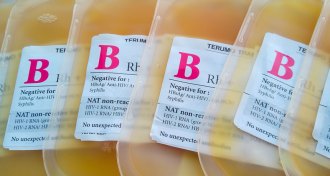 Health & Medicine
Health & MedicineThe FDA says don’t buy young plasma therapies. Here’s why
Infusions of plasma from young people may hold the secret of youth, but there’s not much evidence to support the idea yet.
-
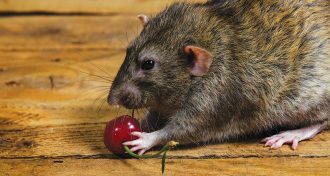 Neuroscience
NeuroscienceBrain cells combine place and taste to make food maps
A select group of brain cells responds to both flavor and location, a specialty that may help an animal find the next good meal.
-
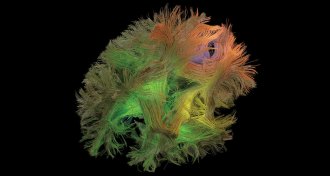 Health & Medicine
Health & MedicineBrain-zapping implants that fight depression are inching closer to reality
Researchers are using electric jolts to correct the faulty brain activity that sparks depression.
-
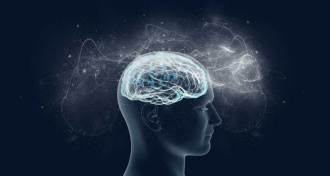 Neuroscience
NeuroscienceBrain scans decode an elusive signature of consciousness
Newly described patterns of brain activity may help reveal the level of awareness in people with brain injuries.
-
 Health & Medicine
Health & MedicineIn the third trimester, a pregnant woman’s sense of personal space grows
Women’s sense of personal space grows to accommodate a larger belly during pregnancy, a small study suggests.
-
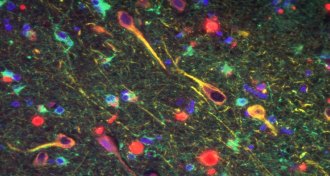 Neuroscience
NeuroscienceNo, we don’t know that gum disease causes Alzheimer’s
A recent study linked gum disease and Alzheimer’s disease, but the results are far from conclusive.